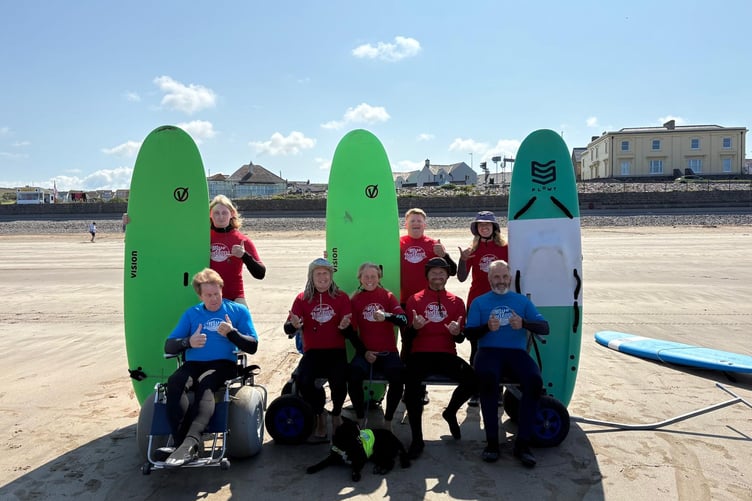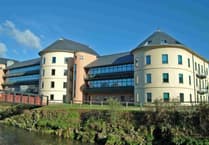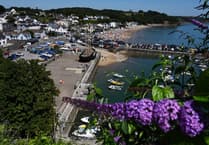Patients with neurological conditions are riding the waves, literally, at Broad Haven, leaving them feeling more confidents and empowered.
It’s all down to an innovative partnership between Hywel Dda University Health Board (UHB) and Blue Horizons Adaptive Surf.
The BrainWaves initiative offers patients who have reached a key stage in their rehabilitation journey the opportunity to participate in adaptive surfing sessions at Broad Haven beach in Pembrokeshire.
Each session is led by qualified adaptive surf instructors from Blue Horizons CIC Surf Club, working alongside a registered therapist and a therapy assistant from the health board.
“Adaptive surfing as a rehabilitation option has only recently become available in Pembrokeshire, with previous patients having to travel further afield,” said Paul Stott, therapy assistant practitioner. “The sea provides a dynamic environment that challenges balance, coordination, and strength, while also offering a sense of freedom and achievement that’s hard to replicate in a clinical setting.”
Over the short six-week programme, patients have shown visible improvements not only in their physical function but also in their emotional wellbeing.
At the beginning of the sessions, Pete struggled to get into his wetsuit. By session six, he was riding the waves on an adaptive prone board.
“With each session, it’s getting better. I’m getting a bit stronger,” said Pete. “I really enjoy the banter with the instructors and staff.”
“It makes Pete feel free,” said his carer, Agita. “I can’t believe we’re here - a year ago, we never thought Pete would be surfing! The team are amazing. They just make it happen.”
Paul added, “There’s a clear change from Pete’s first two sessions to today - the subtle little moments on the board to control speed and direction. He’s fallen off a few times, but he keeps getting back on with a smile.”
Physiotherapists from the health board who support the sessions see enormous benefits for the patients. “What I’ve found, especially in West Wales, is that being by the sea, going into the sea, or surfing is a huge part of many people’s value systems. So, getting them back involved in their values with their new condition and being confident in that, has enormous benefit,” said Kelsey Abbott, specialist physiotherapist. “Where we can, we get them doing things that are important to them.”
Alice Wilson, clinical lead neuro physiotherapist, added: “Lots of people with disabilities are really worried about going to the beach. This is a great way for people to participate in a safe environment.
“One of our patients has a young family and is now going to the beach with them and looking to get a wetsuit! It’s something new they can do together, which is important. It builds confidence.
“The sea is a powerful tool. Just being outside is therapeutic, but this goes a step further. People are doing something they thought they couldn’t do, even when they were able-bodied.
“Another patient nearly didn’t come to these sessions, but she did, caught a wave and the smile. She now feels empowered - she can surf!”





Comments
This article has no comments yet. Be the first to leave a comment.